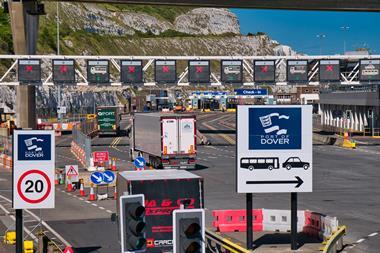
It’s tough for retailers to make strategic choices right now. Put simply, UK food retailers are faced with rapid increases in operational costs and an inability to raise prices.
However, price increases now remain their only choice. P&Ls cannot sustain the pressures around them. Having seen the scale of CPIs in the pipeline, two months ago I predicted 8% food inflation before the end of the year.
This current spate of supplier cost increases is being driven by rising input costs. These include energy, transportation, and raw materials, as well as the national living wage increase, the rise in employer National Insurance contributions, and such poorly conceived initiatives as the packaging tax or extended producer responsibility (EPR). All of these will push up prices at the till, as we know there is no margin buffer in UK food.
These factors alone contribute to projected food inflation rates of around 5% for the year. Additionally, we have yet to see the full impact of HFSS promotional bans, reformulations due to the sugar tax extension, and the change from 5g to 4g of sugar per 100ml in drinks. Climate changes are already distorting food prices as we experience crop failures due to droughts, floods, and unseasonal weather across Europe and beyond.
The retail side
These are just supplier-level costs. Retailers are also affected by many of these pressures, plus burdens such as the phasing out of business rates relief for high street shops. Not to mention their top issue: the epidemic of theft. Solutions to the problem invariably damage shopper experience and create barriers to purchase.
Beyond in-store theft, retailers also now face cyberattacks and the looming threat of class action lawsuits. So, whilst retailers would love to focus on strategic marketing efforts to build and maintain profit – like strengthening their omnichannel presence to meet the shifting expectations of younger consumers – they are instead constantly managing negative forces, many of which are government-imposed.
Lay on top of that the National Food Strategy, the deposit return scheme (DRS) and net zero implications, and further CPIs will need to be repeated very soon. Asda claims it will refuse to accept CPIs – it will, though. As soon as suppliers stop supplying it, it has to back down.
Government policy
We saw food inflation begin with 4.1% last month. It’s reassuring that policymakers are waking up to the fact their own policies will drive inflation further and suppress the growth on which they are relying. The delay of the HFSS advertising ban is the first indication of this realisation, but without multiple u-turns, we are facing skyrocketing food prices.
Given this backdrop, I ask myself: was it naivety or pure deception when Keir Starmer announced that the EU SPS agreement would bring down food prices at the checkout, as if border checks were the sole factor holding them up? Either way, it was misinformation and irresponsible.
David Sables, CEO of Sentinel Management Consultants



















No comments yet